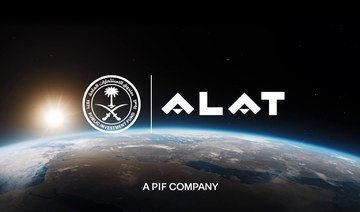LONDON: Global oil markets are tightening quickly on falling supply from Venezuela, which posted 2017’s biggest unplanned output fall and could see a further decline in 2018, the International Energy Agency (IEA) said on Friday.
Debt and infrastructure problems cut Venezuela’s December output to 1.61 million barrels per day (bpd), somewhere near a 30-year low. That helped oil prices top $70 per barrel in early January, their highest level in 3 years.
“The general perception that the market has been tightening is clearly the overriding factor and, within this overall picture, there is mounting concern about Venezuela’s production,” the IEA, which coordinates energy policy in industrialized nations, said in its monthly report.
“Given Venezuela’s astonishing debt and deteriorating oil network, it is possible that declines this year will be even steeper... US financial sanctions are also making it tougher for Venezuela’s oil sector to operate,” the IEA said.
As a result of lower Venezuelan production, the IEA said OPEC’s crude output in December fell to 32.23 million bpd, boosting the group’s compliance with a deal to curb output to 129 percent.
In addition to Venezuela, December saw production problems in the North Sea, which helped cut global December oil supply to 97.7 million bpd, down 405,000 bpd from November.
Commercial stocks in industrialized countries declined for the fourth consecutive month in November and likely fell again in December, the IEA said.
OPEC agreed to lower production in 2017 and has agreed to maintain output cuts for the whole of 2018 to help bring the those stocks down to a 5-year average.
The IEA said that if OPEC and its non-OPEC allies maintained good compliance with the output deal, oil markets would balance in 2018.
“Global crude oil markets saw an exceptionally tight 4Q17,” the IEA said, adding that it saw a combined fall of 1 million bpd during that period on declining stocks in industrialized nations and a fall in Chinese balances.
The recovery in oil prices and a decline in global oil stocks has been helped by robust global demand growth in 2017 but it will slow down in 2018, the IEA said.
It kept its oil demand growth estimate for 2018 unchanged at 1.3 million bpd, down from 1.6 million bpd in 2017, mainly due to the impact of higher oil prices and changing patterns of oil use in China.
Besides slowing demand, a spectacular rise in US output is expected to keep oil prices under pressure, the IEA said.
The IEA said that rapid US growth and gains in Canada and Brazil will drive up non-OPEC supply by 1.7 million bpd in 2018, versus last year’s 0.7 million bpd increase. Non-OPEC nations will be producing just short of 60 million bpd this year.
“US crude supply will push past 10 million bpd, overtaking Saudi Arabia and rivaling Russia,” the IEA said.
The IEA said short-cycle US production was reacting to rising oil prices and therefore it raised its forecast for US crude oil growth for 2018 to 1.1 million bpd from 870,000 bpd in its previous report.
“This represents, after the downturn in 2016 and the steady recovery in 2017, a return to the heady days of 2013-2015 when US-led growth averaged 1.9 million bpd,” the IEA said.
Oil markets tightening as Venezuelan output collapses, IEA says
Oil markets tightening as Venezuelan output collapses, IEA says

Closing bell: TASI closes in green to reach 11,696 points

RIYADH: Saudi Arabia’s Tadawul All Share Index rose on Wednesday, gaining 36.57 points, or 0.31 percent, to close at 11,696.51.
The total trading turnover of the benchmark index was SR5.3 billion ($1.651 billion) as 128 of the listed stocks advanced, while 89 retreated.
Similarly, the MSCI Tadawul Index increased by 11.40 points, or 0.79 percent, to close at 1,460.84.
The Kingdom’s parallel market Nomu climbed by 68.14 points, or 0.26 percent, to close at 26,302.93. This comes as 24 of the listed stocks advanced while as many as 37 retreated.
The top-performing stock of the day was the Saudi National Bank, with its share price surging by 5.76 percent to SR34.90.
Other standout performers included The Mediterranean and Gulf Insurance and Reinsurance Co., and Anaam International Holding Group, whose share prices soared by 4.98 percent and 4.59 percent, reaching SR27.40 and SR1.14, respectively.
Saudi Chemical Co. and National Medical Care Co. also showed notable performance.
The worst performer was the National Co. for Glass Industries, whose share price dropped by 4.31 percent to SR41.05.
Other underperformers included Al-Babtain Power and Telecommunication Co., as well as Saudi Pharmaceutical Industries and Medical Appliances Corp., whose share prices dropped by 3.77 percent and 3.59 percent, to stand at SR37.05 and SR32.20, respectively.
Additional laggards in the market were Thob Al Aseel Co. and CHUBB Arabia Cooperative Insurance Co.
In the parallel market, Nomu, Knowledge Net Co. was the top gainer, with its share price surging by 15.97 percent to SR30.5.
Other top gainers in the parallel market were Shatirah House Restaurant Co. and Nofoth Food Products Co., with their share prices surging by 8.70 percent and 7.23 percent to reach SR12 and SR19.28, respectively.
Miral Dental Clinics Co. was the major loser on Nomu, as its share price slipped 10 percent to SR90.
Osool and Bakheet Investment Co. and Al-Modawat Specialized Medical Co. were other major losers on Nomu. Their share prices dropped by 9.50 percent and 7.23 percent, reaching SR40 and SR154, respectively.
Saudi firms launch $365m fund to boost real estate development in Eastern Province

RIYADH: Real estate development in the Eastern Province is set to receive a boost as two Saudi firms agree to launch a fund worth SR1.37 billion ($365 million) to drive investment in the sector.
Mohammed Al-Nahdi Real Estate and Alinma Investment, the investment arm of Alinma Bank, have announced the launch of the Alinma-Al-Nahdi Real Estate Fund, a property reserve to develop prime land strategically situated in the Eastern Province spanning an area of over 1.6 million sq. m.
In a statement, Abdullah bin Salmeen Al-Nahdi, CEO of Mohammed Al Nahdi Real Estate, emphasized that the fund’s launch reflects his company’s dedication to shaping the Kingdom’s property landscape.
He also underscored his firm’s dedication to enriching its investment portfolio by introducing unique projects to address the housing needs outlined in Saudi Arabia’s 2030 Vision.
The CEO explained that his property firm will develop the land to become the premier destination for housing and real estate investment in the EP.
This development will encompass integrated residential communities, public buildings, commercial zones, and entertainment areas. It aims to provide a comfortable and safe residential environment for citizens while enhancing the region’s quality of life.
Al-Nahdi pointed out that the sales permit has been issued, and the project will be sold in stages during the implementation works. This will allow investors and buyers to benefit from diverse and flexible ownership options that suit their needs and aspirations.
The CEO highlighted that the sales permit has been issued, and the project will be progressively released during the implementation phase.
Mazin Fawaz Baghdadi, CEO and managing director at Alinma Investment, said that the fund’s investment objective is to achieve medium-term capital growth through direct investments in the Kingdom’s real estate sector.
Additionally, Baghdadi emphasized the significant role of real estate development funds as tools that stimulate investment and increase the supply of established land through developmental and urban projects in the Eastern Province.
He stressed that this initiative aligns with Saudi Arabia’s Vision 2030 by boosting the supply of housing units.
As per the announcement, the land is situated along King Abdulaziz Road and GCC Road in Dhahran, adjacent to the Ajyal residential district, one of Saudi Aramco’s major model housing developments.
This strategic location facilitates convenient access to key landmarks in Dammam, Alkhobar, and Dhahran.
Headquartered in Alkhobar and founded in 1993, Mohammed Al-Nahdi Real Estate is a property company with a rich portfolio of notable projects.
According to its website, Alinma Investment is a Saudi closed joint stock firm that was established by Alinma Bank with a capital of SR1 billion and a paid-up capital of SR500 million.
The business is a leading provider of a comprehensive range of Shariah-compliant investment products and services, utilizing the latest advancements in communication and advanced technological systems.
PIF’s Neo Space Group, SES partner to revolutionize inflight connectivity

RIYADH: Airlines will now experience uninterrupted connectivity services via the aviation industry’s first open-architecture, multi-orbit global network powered by regional partners including Neo Space Group — a subsidiary of Saudi Arabia’s Public Investment Fund.
Luxembourg-based satellite telecommunications company SES has announced a collaboration with several regional operators to launch its inflight network, promising seamless global connectivity for airlines.
According to a press release, this Ka-band platform will merge the geostationary earth orbit and medium earth orbit satellite networks of SES including Neo Space Group, AeroSat Link, a subsidiary of China Satcom, and Hughes Communications India.
The SES Open Orbits initiative aims to integrate regional satellite coverage into a global inflight connectivity service, allowing airline passengers uninterrupted connectivity.
This technology is designed to link global and regional satellites to offer consistent inflight internet, enhancing the experience with high-quality video, data, and communication services comparable to ground-based offerings.
The Global Head of Aviation for SES, Elias Zaccack, emphasized the transformative potential of SES Open Orbits, stating: “By spearheading the creation of SES Open Orbits using an open architecture that supports multiple orbits and multiple waveforms, SES is enabling more satellite operators and inflight service providers to participate in the global market for inflight connectivity.”
Philippe Carette, head of the aerospace segment at PIF, expressed enthusiasm for NSG’s involvement, saying: “NSG is excited to be among the first global partners to join the SES Open Orbits inflight connectivity network.”
NSG was established in May to invest in local and international assets and capabilities, as well as promising venture capital opportunities, to catalyze the advancement and localization of sector-specific expertise.
The company will contribute to the development and deployment of the latest cutting-edge technologies in the space industry through its four dedicated business segments: satellite communications, earth observation and remote sensing, satellite navigation and Internet of Things, as well as a satellite and space-focused venture capital fund.
China Satcom Vice President Yufei Shen noted the significance of SES’ partnership for the Asia-Pacific region, stating: “Connecting flights over, in, and out of China, and throughout the Asia-Pacific region is extremely important to most major airlines around the world. China Satcom is extremely pleased to partner with SES to help bring a whole new level of inflight connectivity by leveraging our Ka-band network.”
Shivaji Chatterjee, CEO, president, and managing director of HCI, added: “We will also bring our deep experience in providing end-to-end connectivity services in multiple verticals to our partnership with SES to help ensure the best possible passenger experience to airlines using this exciting, first-of-its-kind inflight connectivity network.”
As a managed service provider of Airbus’ HBCplus program, SES Open Orbits will also be accessible to participating airlines. Additionally, SES is working with Safran Passenger Innovations to offer SES Open Orbits on Boeing aircraft through the Boeing TSA process.
This collaboration represents a major step forward for the inflight process, aiming to enhance passenger experiences by delivering reliable, high-quality connectivity worldwide.
Saudi economy shines amid low inflation rates and Vision 2030 success: official report

RIYADH: The Saudi economy has demonstrated resilience, marked by sustained growth in non-oil sectors and a globally low annual inflation rate of 1.6 percent, as per an official report.
This was highlighted during the latest meeting of the Council of Economic and Development Affairs, where discussions covered crucial reports and topics.
Among these was the Ministry of Economy and Planning’s quarterly analysis of international and local economic performance in the first quarter of 2024. The analysis delved into global economic growth trends and their potential implications for the Kingdom.
Meanwhile, the council, also known as CEDA, reviewed the Strategic Management Office’s 2023 report on the achievements of targets set by the Kingdom’s Vision 2030, highlighting the significant progress made. By 2023, 87 percent of Vision 2030 initiatives were either completed or on track, surpassing the performance of 2022.
Additionally, the Ministry of Health presented progress updates on two pivotal initiatives: the establishment of the Health Holding Co. and the Center for National Health Insurance. These initiatives are integral to the ministry’s healthcare transformation plan, the Saudi Press Agency reported.
The presentation outlined the health ministry’s strategic ambitions, including goals, essential implementation stages, and the embrace of a contemporary healthcare paradigm.
This innovative approach has widened access to healthcare services, improved their caliber and efficacy, and strengthened preventive measures against medical hazards.
Moreover, the presentation highlighted the successful completion of the inaugural phase of the strategy, with 20 health clusters established across Saudi Arabia by the end of 2023.
The SMO’s report also highlighted notable accomplishments, program evaluations, and an overall performance summary, along with ongoing efforts and future aspirations for 2024.
The analysis emphasized the ongoing transformation efforts driven by the vision, which have demonstrably achieved and even surpassed the 2023 goals concerning the vision’s three aspects: a vibrant society, a thriving economy, and an ambitious nation.
CEDA issued pertinent decisions and recommendations concerning all the topics addressed during the meeting.
Under the Council of Ministers, CEDA aims to establish the governance, mechanisms, and measures necessary to achieve Saudi Vision 2030, addressing issues spanning all domestic matters, from health to labor to education and Islamic affairs.
PIF’s Alat, Lenovo forge $2bn partnership to establish manufacturing hub in Saudi Arabia

RIYADH: Saudi Arabia’s pursuit of a sustainable manufacturing hub gains momentum as Alat partners with Lenovo Group to establish a facility and invest $2 billion through zero-coupon convertible bonds.
As part of the agreement, the Chinese firm will set up a regional headquarters in Riyadh for the Middle East and Africa region, along with a new manufacturing hub in the Kingdom, to supplement its existing 30-plus production sites worldwide. The facility will prioritize smart, sustainable manufacturing and will initially cater to customers in the MEA region.
The Public Investment Fund-owned firm’s investment in Lenovo will be in the form of a bond subscription agreement, with the electronics giant issuing $2 billion in convertible bonds.
Amit Midha, CEO of Alat, said: “We are incredibly proud to become a strategic investor in Lenovo and partner with them on their continued journey as a leading global technology company.”
He added: “With the establishment of a regional headquarters in Riyadh and a world class manufacturing hub, powered by clean energy, in the Kingdom of Saudi Arabia, we expect the Lenovo team to further their potential across the MEA region.”
This move aligns with the Saudi firm’s commitment to Vision 2030, supporting environmentally-conscious production powered by clean energy, creating new jobs in the industrial and electronics sectors, and capitalizing on regional economic growth opportunities.
Through this investment, Alat anticipates creating 15,000 direct and 45,000 indirect jobs in Saudi Arabia, generating a cumulative gross domestic investment impact of $10 billion by 2030.
Lenovo’s convertible bonds will be due three years after issuance and will convert to equity upon maturity at an initial conversion price of 10.42 Hong Kong dollars ($1.33) per share.
“Through this powerful strategic collaboration, Lenovo will have significant resources and financial flexibility to further accelerate our transformation and grow our business by capitalizing on the incredible growth momentum in the MEA region,” said Yuanqing Yang, chairman and CEO of Lenovo.
He added: “Looking ahead, Lenovo plans to build a tech and manufacturing hub in Saudi Arabia and will help define the future of the region as a center of innovation which Alat will benefit from. This is a huge vote of confidence in our company, our market leadership, and our future growth potential.”
Moreover, the partnership between Alat and Lenovo aims to harness the transformative potential of digital technologies while establishing the region as a global innovation hub.
This collaboration is expected to significantly impact the region’s journey toward a diversified, resilient, and technologically advanced future.
Launched in February by Crown Prince Mohammed bin Salman, Alat aims to position Saudi Arabia as a global center for sustainable technology manufacturing, focusing on advanced technologies and electronics.















